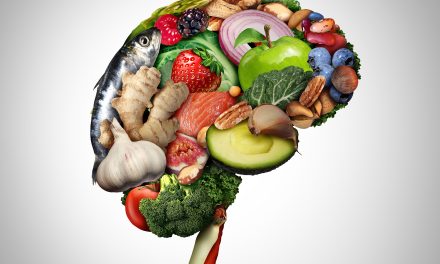Memory changes are a normal part of aging, but they don’t have to interfere with daily life. Regular exercise, a healthy diet rich in omega-3 fatty acids, and daily mental stimulation can help prevent age-related memory decline in seniors.
Many older adults worry about forgetfulness, but taking action early makes a big difference. Brain training exercises and memory techniques help maintain mental sharpness. Social activities, proper sleep, and stress management also play key roles in brain health.
Simple lifestyle changes can have powerful effects on memory function. Building muscle through strength training improves both physical and mental health. Using calendars, setting reminders, and keeping a consistent daily routine helps seniors stay organized and independent.
Key Takeaways
- Daily physical exercise and a brain-healthy diet protect memory function
- Regular social interaction and mental activities strengthen cognitive abilities
- Proper sleep and stress management techniques preserve brain health
Understanding Memory Loss
Memory changes happen as people age, but the severity and impact varies greatly between individuals. The brain’s ability to store and recall information depends on both biological and lifestyle factors.
Types of Memory
Short-term memory helps people remember things for a few seconds to a few minutes, like a phone number or grocery list. Working memory allows people to use and process this temporary information.
Long-term memory stores facts, experiences, and skills over extended periods. This includes procedural memory for tasks like driving or typing, and declarative memory for facts and events.
Cognitive decline can affect each type of memory differently. Some seniors maintain strong long-term memories while struggling with new information.
Common Causes in Seniors
Natural aging leads to slower processing and mild forgetfulness. Brain cells and neural connections decrease over time, making it harder to form new memories.
Medical conditions like mild cognitive impairment can cause more noticeable memory problems. Other factors include:
- Medication side effects
- Depression or anxiety
- Poor sleep quality
- Vitamin B12 deficiency
- Dehydration
- Thyroid problems
Many of these causes are treatable with proper medical care. Regular health checkups help identify and address memory-affecting conditions early.
Lifestyle Modifications
Simple changes to daily habits can make a big difference in protecting brain health and memory function. Small adjustments to diet, exercise, and mental activities create powerful results when done consistently.
Nutritional Adjustments
A brain-healthy diet includes lots of colorful fruits and vegetables, especially leafy greens and berries. Omega-3 fatty acids from fish like salmon and sardines protect brain cells.
Foods rich in antioxidants help prevent cognitive decline. These include dark chocolate, nuts, and green tea.
Reducing sugar and processed foods is essential. Too much sugar can damage brain cells and increase inflammation.
Key nutrients for brain health:
- Vitamin B12
- Vitamin D
- Folate
- Zinc
- Magnesium
Physical Exercise
Regular movement keeps blood flowing to the brain and creates new neural connections. Building muscle through strength training helps maintain cognitive function.
Recommended weekly activities:
- 150 minutes of moderate cardio
- 2-3 strength training sessions
- Balance exercises
- Stretching
Walking for 30 minutes daily improves memory and thinking skills. Exercise also reduces stress and improves sleep quality.
Mental Stimulation
The brain needs regular challenges to stay sharp. Learning new skills creates fresh neural pathways and strengthens existing ones.
Effective brain exercises:
- Learning a new language
- Playing an instrument
- Doing puzzles
- Reading challenging books
- Taking up a new hobby
Social interaction provides vital mental stimulation. Group activities like book clubs or card games combine social and mental benefits.
Active lifestyle choices enhance cognitive function and help maintain mental sharpness throughout aging.
Medical Approaches
Regular medical care and proper medication management play key roles in protecting brain health and mental function as people age. Medical professionals can identify early warning signs and recommend targeted treatments.
Routine Health Screenings
Medical checkups help detect conditions that affect memory and cognitive function. Getting blood pressure and cholesterol levels checked at least yearly helps prevent cardiovascular problems that impact brain health.
Blood sugar tests screen for diabetes, which can damage blood vessels in the brain. Testing vitamin B12 and thyroid hormone levels identifies deficiencies linked to memory problems.
Annual vision and hearing exams ensure seniors can fully engage with their environment. Poor vision or hearing can make it harder to remember information and stay mentally sharp.
Medications and Supplements
Some medications can affect memory and thinking. A doctor should review all prescriptions yearly to check for harmful interactions or side effects. Common medications that may impact cognition include:
- Antihistamines
- Sleep aids
- Antidepressants
- Anti-anxiety medications
- Some blood pressure medications
Natural supplements and vitamins like B12, vitamin D, and omega-3s support brain health when taken under medical supervision. The doctor can recommend safe dosages and check for interactions with other medications.
Social Engagement
Keeping the mind active through social connections plays a vital role in maintaining cognitive health. Regular social activities and meaningful relationships create mental stimulation that helps protect brain function.
Community Involvement
Regular participation in community activities provides mental stimulation and purpose. Seniors can join local clubs, religious organizations, or volunteer groups that match their interests.
Group exercise classes offer both physical activity and social interaction. Book clubs, craft groups, and hobby organizations create opportunities for learning while connecting with others.
Volunteer work strengthens cognitive abilities through problem-solving and social engagement. Options include helping at libraries, schools, or community centers.
Family and Social Networks
Strong social networks protect against cognitive decline by providing mental stimulation and emotional support. Regular family gatherings, video calls, and shared meals maintain close relationships.
Making new friends through shared activities or interest groups expands social circles. Senior centers and community programs offer structured opportunities to meet people.
Staying connected through technology helps maintain relationships. Social media, email, and video chat platforms let seniors interact with family and friends from home.
Ways to Stay Connected:
- Schedule weekly family video calls
- Join group activities at senior centers
- Participate in religious or spiritual communities
- Attend neighborhood events
- Start a regular lunch or coffee meetup with friends
Cognitive Training Techniques
Research shows that targeted cognitive exercises help seniors maintain mental sharpness. Regular brain training activities strengthen neural connections and improve daily functioning.
Memory Enhancement Games
Playing card games like bridge or poker exercises working memory and strategic thinking. These activities require players to track multiple pieces of information while making decisions.
Studies demonstrate that crossword puzzles and word searches boost vocabulary retention and mental processing speed. Seniors should spend 15-20 minutes daily on these activities.
Digital brain training apps provide personalized memory exercises. Popular options include:
- Luminosity
- BrainHQ
- Peak
- Elevate
These apps adapt to individual skill levels and track progress over time.
Skill Building Activities
Learning new skills creates fresh neural pathways. Cognitive training programs that teach unfamiliar tasks show promising results for memory preservation.
Recommended skill-building activities:
- Learning a musical instrument
- Studying a foreign language
- Taking up photography
- Learning to paint or draw
- Mastering new technology
The key is choosing activities that are challenging but achievable. Seniors should practice new skills for 30-45 minutes, 3-4 times per week.
Group learning settings provide social interaction while building cognitive reserve. Community centers and senior facilities often offer structured learning programs.
Sleep Quality and Memory
Good sleep directly affects memory formation and brain health in older adults. Poor sleep leads to memory problems and reduced cognitive function.
Importance of Sleep
Research shows that seniors with poor sleep quality perform worse on working memory tests compared to those who sleep well.
The brain uses sleep time to process and store memories from the day. During deep sleep, memories move from short-term to long-term storage.
Studies have found that disrupted sleep can cause memory lapses and concentration problems in older adults.
Sleep Hygiene Practices
Create a consistent sleep schedule by going to bed and waking up at the same time each day. Keep the bedroom cool, dark, and quiet.
Avoid screens and bright lights 1-2 hours before bedtime. The blue light interferes with natural sleep hormones.
Exercise and strength training during the day improves sleep quality at night. Avoid caffeine after lunch.
Key bedtime practices:
- Use comfortable bedding and pillows
- Keep room temperature between 60-67°F
- Block out noise with earplugs or white noise
- Avoid large meals close to bedtime
Managing Stress and Emotional Health
Mental wellness plays a vital role in protecting memory function as we age. Strong emotional health and good stress management help keep the brain sharp and reduce the risk of age-related memory decline.
Stress Reduction Techniques
Regular meditation practice for 10-15 minutes daily helps calm the mind and reduce harmful stress hormones. Deep breathing exercises can quickly lower stress levels in challenging moments.
Getting 7-8 hours of quality sleep each night gives the brain time to process memories and recover from daily stress. Creating a consistent bedtime routine supports better sleep.
Simple Daily Stress Reducers:
- Taking short walks in nature
- Listening to calming music
- Writing in a gratitude journal
- Gentle stretching or yoga
- Spending time with pets
Addressing Depression and Anxiety
Depression and anxiety can significantly impact memory formation and recall. Seniors should talk openly with their doctor about mood changes or persistent worry.
Professional counseling helps develop healthy coping strategies for managing difficult emotions. Cognitive behavioral therapy is especially effective for treating anxiety in older adults.
Staying socially connected through regular activities with friends and family helps prevent isolation and boost mood. Senior centers, religious groups, and hobby clubs provide great opportunities for meaningful social interaction.
Warning Signs to Watch For:
- Loss of interest in favorite activities
- Changes in sleep or appetite
- Feeling hopeless or worthless
- Excessive worrying
- Social withdrawal
Home and Environmental Adjustments
Making simple changes to a senior’s living space can protect against memory loss and support cognitive function. A well-designed environment reduces stress and creates opportunities for mental stimulation.
Safety Proofing
Creating a safe environment helps seniors maintain independence while preventing accidents that could affect cognitive health. Install bright lighting in all rooms to reduce confusion and improve visibility.
Remove trip hazards like loose rugs and clutter from walkways. Place nightlights in bathrooms and hallways for better navigation after dark.
Label cabinets, drawers, and doors with clear text or pictures to help identify contents. Use contrasting colors for important items like handrails against walls.
Promoting Independence
Set up memory stations in key areas with items used daily. Place a basket by the front door for keys, wallet, and other essentials.
Organize living spaces to be simple and clutter-free. Keep frequently used items visible and within easy reach.
Create dedicated spaces for different activities:
- Reading corner with good lighting
- Hobby area with supplies organized
- Exercise space with safe equipment
- Calendar station for tracking appointments
Use memory aids like whiteboards for daily schedules and reminders. Place clocks and calendars in visible locations throughout the home.
Technological Aids and Reminders
Modern technology offers many tools to support memory and daily tasks. Digital devices and reminder systems can help seniors stay organized and independent.
Use of Smart Devices
Assistive technology devices like smartphones and tablets provide powerful memory support features. These tools come with built-in calendars, notes, and voice assistants.
Seniors can use voice commands to set alarms, make lists, or call family members. This removes the need to remember complex button sequences or navigation.
Smartwatches offer additional convenience by displaying notifications right on the wrist. They can track medications, appointments, and daily activities with gentle vibration alerts.
Reminder Systems
Electronic reminder systems range from simple alarm clocks to sophisticated medication dispensers. Many devices can be programmed to give audio, visual, or tactile prompts.
Digital pill organizers send alerts when it’s time to take medication. Some models even notify family members if doses are missed.
Smart home systems can provide automated reminders for:
- Taking medications
- Drinking water
- Attending appointments
- Completing daily tasks
- Locking doors at night
The best reminder system matches the senior’s comfort level with technology and specific memory needs.
Professional Care and Assistance
Getting expert help can make a big difference in managing memory concerns. Medical professionals and care services offer specialized support to maintain cognitive health and quality of life.
Home Health Services
Professional caregivers provide essential support right at home. They can help with medication management, daily activities, and mental exercises to keep the mind sharp.
Trained healthcare providers can spot early warning signs of cognitive decline and adjust care plans as needed. They work closely with doctors to track progress and changes.
Many home health agencies offer both medical and non-medical care. Services include:
- Memory exercises and brain training
- Medication reminders
- Personal care assistance
- Light housekeeping
- Transportation to medical appointments
Respite Care Options
Respite care gives family caregivers much-needed breaks while ensuring seniors receive proper care. Short-term care services can last from a few hours to several weeks.
Options include:
- Adult daycare centers
- In-home respite care
- Short stays at assisted living facilities
- Senior companion programs
These services provide social interaction and structured activities to keep seniors mentally engaged. Professional staff members are trained to work with memory issues and can provide appropriate cognitive stimulation.
Legal and Financial Planning
Making important legal and money decisions early helps protect seniors’ wishes and assets as they age. Taking action before memory issues arise ensures their choices will be respected.
Advance Directives
A living will lets seniors specify their medical care preferences. This document guides doctors and family members if someone becomes unable to make their own healthcare decisions.
Power of attorney documents designate a trusted person to handle medical and financial matters. Seniors should choose someone who understands their values and can make tough choices.
Key advance directives to put in place:
- Healthcare proxy
- A durable power of attorney
- Living will
- A do-not-resuscitate order (if desired)
Estate and Financial Management
Professional financial planning helps protect assets and prepare for future care costs. A financial advisor can create strategies for managing investments, income, and expenses.
Essential financial and estate planning steps:
- Create or update a will
- Review insurance policies
- Set up trusts if needed
- List all accounts and passwords
- Organize important documents
A qualified elder law attorney can help arrange legal protections. They ensure documents meet state requirements and reflect current laws.
Seniors should store copies of legal papers in a secure place. Tell trusted family members where to find these important documents.
Frequently Asked Questions
Memory protection strategies combine physical activity, proper nutrition, cognitive training, and targeted medical interventions. Scientific research has shown these approaches can help maintain and enhance cognitive function in older adults.
What are scientifically supported methods to enhance memory in older adults?
Regular cognitive training exercises like puzzles, word games, and learning new skills strengthen memory pathways in the brain.
Social engagement through group activities and regular conversations helps maintain mental sharpness and memory function.
Getting 7-8 hours of quality sleep each night allows the brain to properly process and store memories.
Are there specific medications recommended for age-associated memory impairment?
Certain prescription medications can help manage mild cognitive impairment when prescribed by a doctor. These include cholinesterase inhibitors and memantine.
Medical professionals may recommend supplements like vitamin B12, vitamin D, and omega-3 fatty acids to support brain health.
How does physical exercise influence memory retention in the elderly?
Regular exercise increases blood flow to the brain and stimulates the growth of new brain cells.
Moderate activities like walking, swimming, or yoga for 30 minutes daily can improve memory and cognitive function.
Strength training exercises help maintain brain health by reducing inflammation and improving blood flow.
What role does diet play in preventing memory loss among seniors?
A Mediterranean-style diet rich in fruits, vegetables, whole grains, and lean proteins supports brain health and memory function.
Foods high in antioxidants and omega-3 fatty acids protect brain cells from damage and reduce inflammation.
Staying hydrated by drinking 6-8 glasses of water daily helps maintain optimal brain function.
Can cognitive exercises and activities improve memory function in senior citizens?
Learning new skills like a musical instrument or foreign language creates new neural connections and strengthens existing ones.
Playing strategy games, completing crossword puzzles, and reading regularly challenge the brain and maintain cognitive abilities.
Group activities that combine social interaction with mental stimulation provide multiple benefits for brain health.
What strategies are effective in managing memory loss for those already experiencing it?
Using memory aids like calendars, notes, and reminder systems helps organize daily activities and important information.
Breaking tasks into smaller steps and establishing consistent routines makes information easier to remember and process.
Keeping a dedicated place for important items like keys, glasses, and medications reduces confusion and frustration.
Conclusion
Taking action to protect brain health can make a big difference for seniors. Simple daily habits like staying physically active, eating well, and getting good sleep form the foundation of memory care.
Studies with older adults show that cognitive training exercises help maintain mental sharpness. Regular brain games, puzzles, and learning new skills keep the mind engaged and active.
Social connections play a vital role in brain health. Joining community groups, spending time with family, and making new friends provides mental stimulation and emotional support.
Memory aids and strategies help seniors stay organized and independent. Using calendars, making lists, and creating routines makes daily tasks easier to remember and complete.
Regular medical checkups allow doctors to catch potential issues early. Managing health conditions and medications properly helps protect cognitive function over time.
The key is starting these healthy habits early and staying consistent. Small positive changes add up to make a real impact on memory and brain health as people age.

















